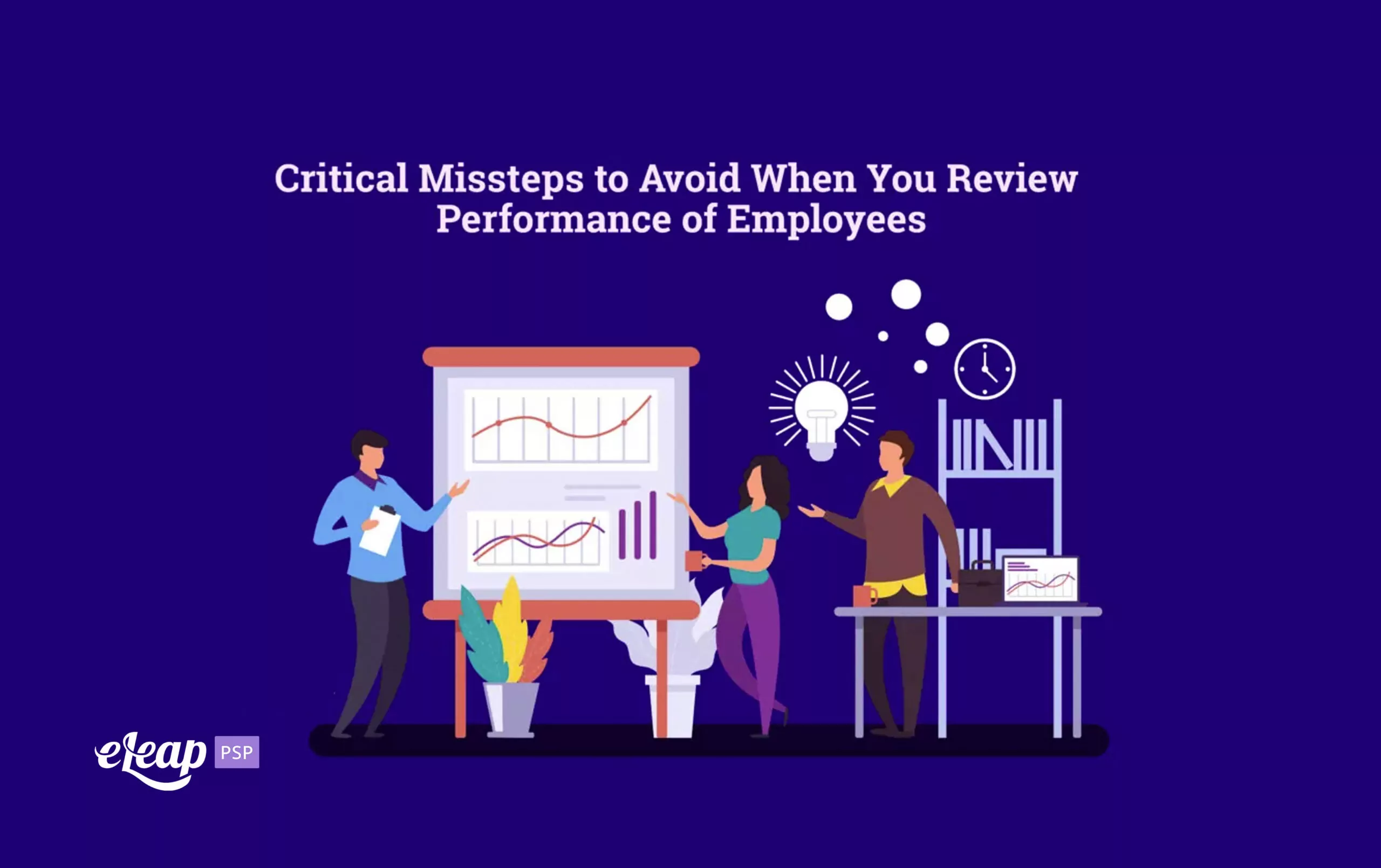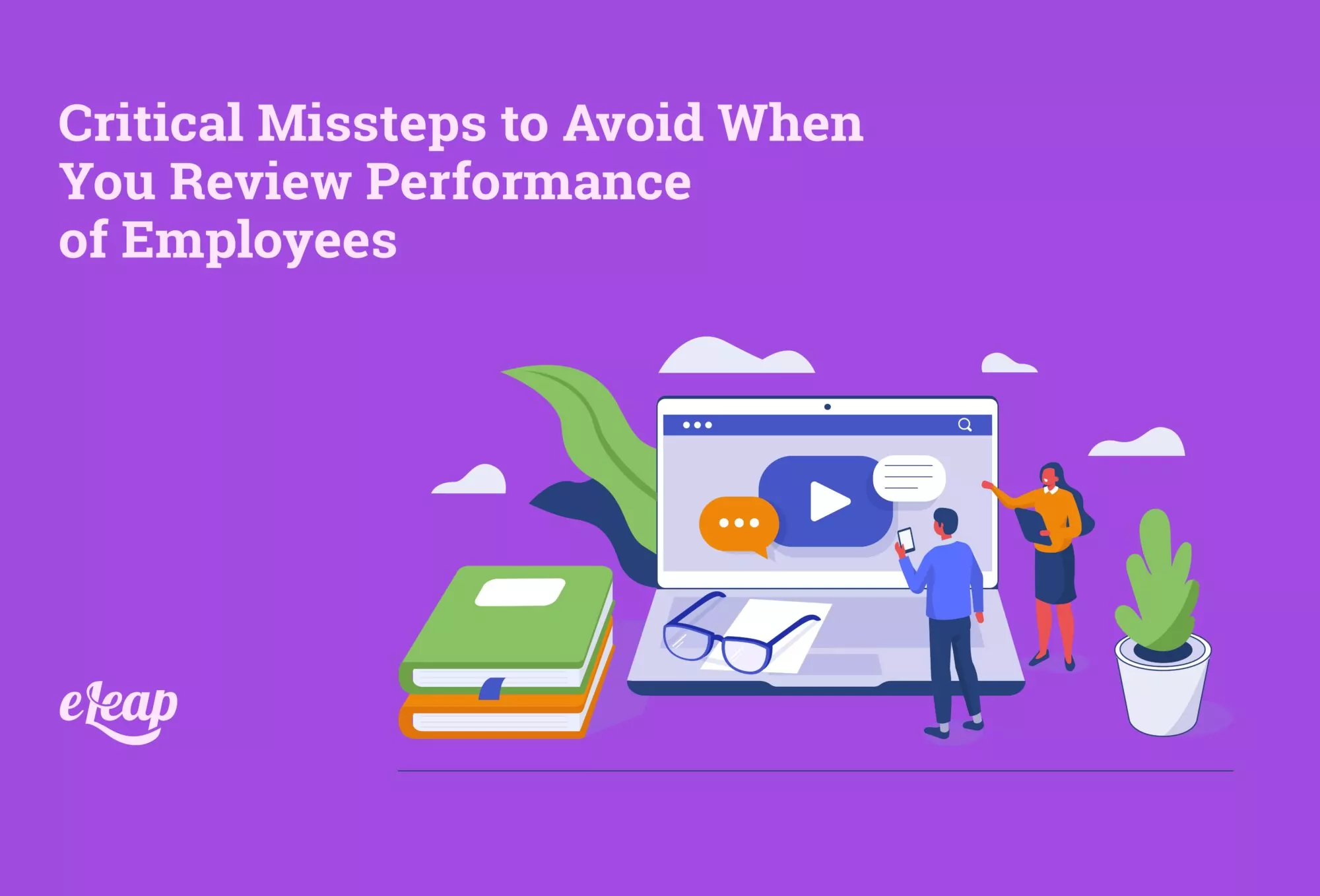Critical Missteps to Avoid When You Review Performance of Employees

No matter how open your organization’s structure might be, you still have to review performance. That might not take the form of an annual review – it could be regular check-ins and sit-downs with employees. Regardless of the form it takes, though, you must avoid some critical missteps when you review performance.
The right steps will provide clarity and guidance, foster understanding, and help the employee feel supported and encouraged. That increases engagement, builds loyalty, and breeds goodwill, while simultaneously boosting performance and productivity. The wrong steps, on the other hand, will create disengagement, perhaps even dissent, reduce productivity, and possibly increase employee turnover.
As a manager, you want to support your employees while simultaneously ensuring that the business operates smoothly and can compete on even footing within the industry. That requires that you review performance correctly. Thankfully, avoiding missteps that might derail your success often comes down to knowing what they are so you can sidestep each one.

Surprise, It’s Review Time!
Perhaps the single most damaging misstep managers can make is surprising employees with a review. This catches them off guard and immediately puts them on the defensive. It doesn’t matter if the review is positive, neutral, or negative, going into it in defensive mode automatically reduces the value derived. What is the solution, then?
Simply this – make sure that your employees have time to prepare for their review. With notice that you will review performance with them soon, they will be ready for the process. This gives them the opportunity to:
- Review their performance on their own before the official sit-down
- Consider their successes, but also where they have fallen short
- Come up with questions to ask and feedback to provide to you, the manager
With that being said, it is important to strike a balance between the right amount of warning and too much time. With too much time, it becomes possible for employees to dwell on the review, which can make them feel anxious and stressed. That will impact their physical, mental, and emotional health and take a toll on their performance and productivity leading up to the review itself.
Only Using Annual Performance Reviews
Another major mistake when you review performance is using only the annual format. Most businesses today are migrating to a much more agile format where employees receive critical feedback in real-time, allowing them to make informed decisions and course corrections when it is possible.
There are many problems with the annual performance review model, including the following:
- They supply performance-related information so long after the fact that it is virtually useless.
- They are unable to effect meaningful change in employee behavior because they lack value in themselves.
- Their arbitrary nature creates a disconnect with your employees who find it difficult to see the utility in a once-per-year review.
Instead, consider moving to a quarterly format, or even moving to a format where you review performance monthly. This offers accurate information on a timeframe that allows your employees to use that feedback to improve their performance in real-time.
Not Connecting Learning and Development with Performance
There is a tendency to focus on employee performance as though it somehow exists in a vacuum. That is far from the truth. Performance is affected by an incredibly wide range of factors, from team morale to the company’s corporate culture. Learning and development also figure into this equation.
As a manager, it is important to support employees by providing them with the right tools and training. Not only will this help ensure they can do their work, but it provides them with the ability to grow and develop, becoming more valuable to the business, more confident in themselves, and better able to deliver optimized outcomes.
Don’t disconnect learning and development when you review performance with employees. Ask each employee:
- What can I do to help?
- What tools do you need?
- What additional resources do you require?
- What do you want to learn?
- Where do you want to go within the company?
When you have the answers to those questions, you can begin helping employees to learn, grow, and become the best version of themselves.
Not Being Critical
When you review performance, there may be a tendency to fall too far on one side of the scale. You might focus on performance while excluding learning. You could focus on punitive measures rather than support. Or you might focus on being helpful to the extent that you cannot provide critical feedback.
Critical feedback is crucial. Yes, it can be tough to give (and to receive), but without it, your team won’t be challenged enough to achieve real growth or change. How do you do that, though? First, understand that critical feedback is not necessarily negative. It is also not destructive and focused on tearing down your team.
Critical feedback should be actionable and constructive. While it forces us to deal with harsh truths, those truths don’t have to dominate the conversation. Instead, use critical feedback as a springboard into a development plan that helps address shortcomings and problem behaviors in ways that make employees feel valued, supported, and encouraged to do better.
Of course, to do that, you’ll need a psychologically safe space where employees feel free to give and receive critical feedback. Creating such a space can be challenging, but Harvard Business Review offers a good outline of how to achieve it in your organization.
Additional Mistakes
We’ve covered some of the most important missteps to avoid in a review of performance. However, there are others that you should know, as well. For instance, temper your feedback so it’s not solely focused on negative elements. Don’t use a one-size-fits-all approach to evaluations and reviews, either. Finally, don’t forget to follow up. All the reviews in the world won’t help effect real change if you don’t take the next steps.
What has your experience been like? What lessons have you learned that might benefit others? Share them in the comments below.